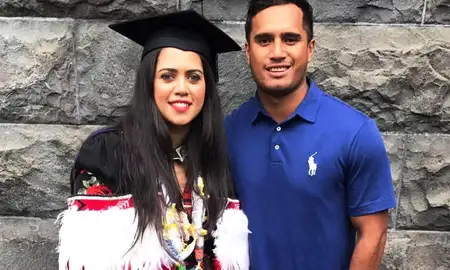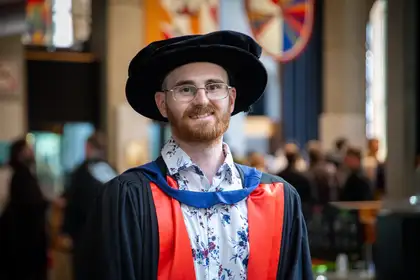
Dr Jake Gallagher
“When I was around 19 or 20 years old, my mental health wasn't the best, but I remember having absolutely no idea how or where to seek help, or what that help would even look like - and I was close to graduating with a psychology degree,” Dr Gallagher says.
The 30-year-old, who recently graduated in Wellington, started his Doctor of Clinical Psychology at Massey in 2018, three years after completing his Master of Science at Victoria University of Wellington.
Dr Gallagher knew that he wanted his thesis to explore help-seeking among men, and the media’s role in this.
“As I dug into the literature, it became apparent that attitudes and beliefs towards [mental health] services are an important barrier to help-seeking, but there was not a lot of literature asking men who haven't used services about their beliefs,” he explains.
Dr Gallagher conducted his research in two parts: interviewing young men who have never accessed or worked in mental health services; and looking at articles relating to mental health from two major online New Zealand news outlets.
“I found that young men did not know a lot about services, and most of what they knew was based on popular media. The men tended to prefer to fix things themselves, but most were open to the idea of services. However, there was a general disfavour of medication, and not a lot of understanding of talk therapies.”
He also found that news media painted conflicting pictures of mental health services.
“Some articles seemed to encourage people to seek help and take control over their mental health, while another common theme in the news was that mental health services were in crisis and that the Government was not meeting people's needs.”
What surprised Dr Gallagher was that the young men he interviewed were open to discussing and learning about mental health and services, but they did not have enough good information or personal experiences to go off.
“They acknowledged that their beliefs were based on media, and that it probably wasn't accurate, but it was the only source of information that they had to draw upon when we spoke.”
With his research due to be published in the New Zealand Journal of Psychology, Dr Gallagher is hopeful that it will have a positive impact.
“If realistic and balanced portrayals and information about mental health services become part of our mental health campaigns and news media, it could soften the fear of the unknown and the misconceptions about services,” he says.
“This might help people feel safe to seek help and to engage with services. Of course, not all services are safe or available for all people - but knowing what happens may reduce barriers and help people to make more informed choices about their care. News media could create segments where actual services and clinicians are presented in a realistic light, so that people will know what to expect.”
Since completing his study, Dr Gallagher has moved back to his hometown, New Plymouth, where he lives with his partner who he met during his clinical training, and their two newly-adopted dogs.
He works at the Child and Adolescent Mental Health Service, Te Whatu Ora Taranaki and hopes to complete further study to register as a neuropsychologist.
More news
Exploring the whānau experience of suicide loss
Coping with the death of a loved one is difficult for any whānau but when that death is suicide, it is particularly difficult due to the stigma associated with it.
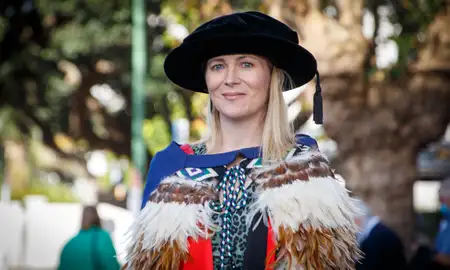
Wellington celebrates 2022 graduates
More than 500 students will cross the stage at the Michael Fowler Centre on Tuesday 11 October at graduation ceremonies in Wellington.
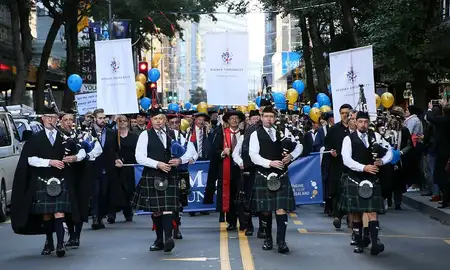
Opinion: Menopause is not a mental health issue
When my colleagues were recently trying to get a research article about nurses’ experience of menopause published in a nursing journal, they were repeatedly told they needed to submit it to mental health journals instead.
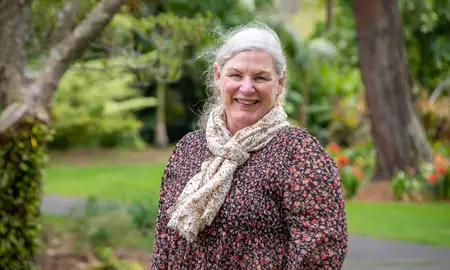
Studying for change in Māori and Pacific mental health services
When Chloe Maeva, Ngāi Takoto, Ngāti Kuri, Te Rarawa, began her first role after completing a Bachelor of Nursing, she found the inequities in mental health services unacceptable, especially for Māori and Pacific communities.
